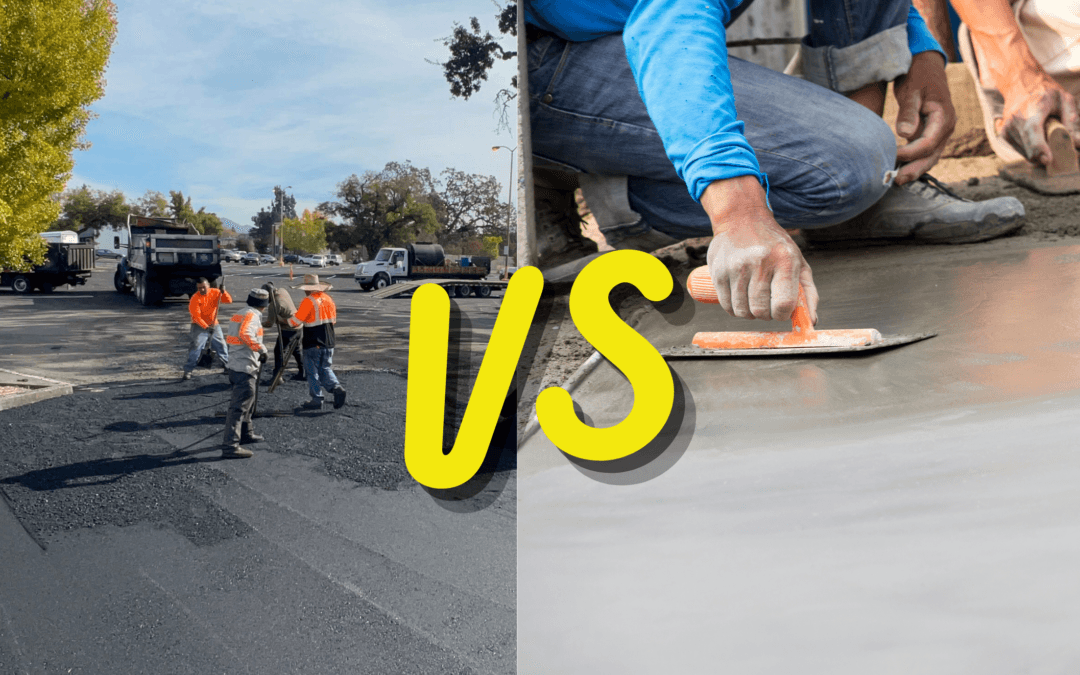ASPHALT VS CONCRETE
Here at WE LOVE PAVING we’re transparent with our clients, we make sure that every aspect of your job is detailed to your needs.
When it comes to constructing roads and pavements, two materials dominate the market – concrete and asphalt. Both materials have their advantages and disadvantages, making it crucial to choose the right material for a specific project.
Concrete:
Concrete is a versatile material that has been used for construction purposes for centuries. It is made up of a mixture of cement, water, and aggregates like sand and gravel. Concrete is a rigid material that offers excellent durability and strength, making it ideal for heavy traffic areas like highways and airports.
Pros of concrete:
- Durability: Concrete is incredibly durable and can withstand heavy loads without cracking or deforming. It can also resist weathering and erosion, making it an excellent choice for long-lasting pavements.
- Low maintenance: Concrete pavements require minimal maintenance and can last up to 30 years or more without needing major repairs.
- Safety: Concrete offers excellent skid resistance, making it a safer option for high-traffic areas like highways and intersections.
Cons of concrete:
- Cost: Concrete pavements can be more expensive than asphalt pavements due to the higher cost of materials and installation.
- Slow installation: Concrete takes longer to install than asphalt, which can delay the completion of a project.
- Environmental impact: The production of cement, a key ingredient in concrete, produces a significant amount of carbon dioxide, which contributes to climate change.
Asphalt:
Asphalt, also known as blacktop, is a mixture of aggregates like sand and gravel, and a petroleum-based binder. Asphalt is a flexible material that can adjust to slight movements in the underlying surface, making it ideal for areas with varying temperatures and freeze-thaw cycles.
Pros of asphalt:
- Cost-effective: Asphalt is generally less expensive than concrete, making it an ideal choice for projects with budget constraints.
- Quick installation: Asphalt can be installed more quickly than concrete, which can help complete a project on time.
- Recyclable: Asphalt is a recyclable material that can be reused, making it an environmentally-friendly option.
Cons of asphalt:
- Maintenance: Asphalt pavements require regular maintenance and may need to be resurfaced every 10 to 20 years.
- Durability: Asphalt does retain more heat than concrete, during high temperature asphalt can crack.
- Safety: Asphalt pavements can form potholes if left unattended
Choosing between concrete and asphalt depends on the specific project requirements, budget, and environmental concerns. It is crucial to weigh the pros and cons that’s why We Love Paving is here with our team of professionals to make the job that much easier.

